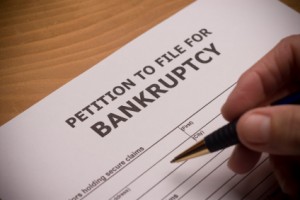Bankruptcy Blog
Filing Bankruptcy: What Should You Do?
by on 7/1/2024Deciding whether you qualify to file a certain chapter of bankruptcy, whether you qualify for a discharge, and whether you should file a particular chapter are three distinct questions.
Almost anyone or any business can file a Chapter 7 if they want to liquidate their assets, but only individuals or sole proprietors can file a Chapter 13; corporations have to file a Chapter 11 if they want to reorganize.
There is a limit to how much debt you can have and still qualify to file a Chapter 13 bankruptcy, right now that limit is $465,275 in unsecured debt and $1,395,875 in secured debt. If you are above this limit and still want to go through reorganization, you will have to file a Chapter 11.
What about qualifying for a discharge? If you received a Chapter 7 discharge you must wait eight years to obtain another Chapter 7 discharge, and four years to obtain a Chapter 13 discharge. However, keep in mind that just because you do not qualify for a discharge in a Chapter 13, does not mean you do not qualify to file a Chapter 13. There are a number of circumstances when filing a Chapter 13 is advisable even if you will not receive a discharge: one good reason is saving your home from foreclosure. A corporation does not receive a discharge in a Chapter 7 or Chapter 13.
If you determine you qualify to file a certain chapter and you also qualify for a discharge, then you need to determine if you should file. There are many important factors you need to consider before you file. Once you file a Chapter 7 you can’t just walk away, as the trustee will say, “Your assets are mine!”
Talk to an experienced bankruptcy attorney. The experienced attorneys with Bankruptcy Law Group offer a free initial consultation where we will listen to your situation and help you to understand what options are available to you.
Author - Chad Johnson - Founder and Lead Bankruptcy Attorney


